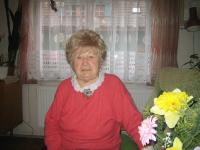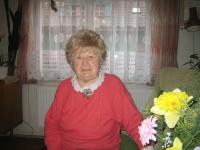At the office with the Germans and the Communists

Stáhnout obrázek
Blažena Froncová, née Bauerová, was born on February 10, 1924, in Jičín, where she spent most of her life. She grew up with her brother in destitute conditions in a shoemaker‘s family. She attended school in Nové Město in Jičín. Afterwards, she studied for two years at a business academy in Hořice in Podkrkonoší. Since 1941, she worked at the district council as a junior clerk. In 1943, she was assigned to forced labor in Nová Paka, where she commuted. After the war, she came back to the district council and worked there as the secretary of the chairman of the council. In 1948, the council was taken over by the Communist party and Mrs. Froncová was dismissed in 1950. After that, she began to work as an accountant for the ČSAD. Although she had refused to join the Communist party, she became a lay judge of the peoples‘ court in 1955. She still lives with her husband in Jičín today.

